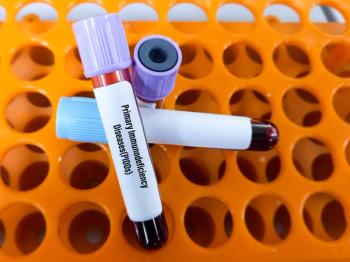
Duration of Vancomycin Reduced Through Education of Prescribers, Utilization of MRSA PCR Nasal Swab
The objective of the study was to develop a method for de-escalation of intravenous (IV) vancomycin in patients receiving vancomycin with at least 1 other antibiotic appropriate for the treatment of community-acquired pneumonia (CAP).
A study on the de-escalation of vancomycin for pneumonia treatment found that there are opportunities to improve the use of the methicillin-resistant S. aureus (MRSA) PCR nasal swab upon diagnosis to further guide antibiotic prescribing for pneumonia, according to a poster presentation at the American Society of Health-System Pharmacists' virtual 2020 ASHP Midyear Clinical Meeting and Exhibition.
The objective of the study was to develop a method for de-escalation of intravenous (IV) vancomycin in patients receiving vancomycin with at least 1 other antibiotic appropriate for the treatment of community-acquired pneumonia (CAP).
The Augusta Health Antimicrobial Stewardship Committee identified that vancomycin was routinely prescribed for pneumonia treatment, including CAP. Further, the American Thoracic Society and Infectious Diseases Society of America published updated guidelines for the diagnosis and treatment of adults with CAP in 2019. These guidelines recommend abandoning the use of prior pneumonia categories to guide extended antibiotic coverage, covering for MRSA based on locally validated risk factors. The strongest risk factors for MRSA respiratory infections include prior MRSA isolation, recent antibiotic exposure, or hospitalization in the past 90 days.
Using a multi-step approach can reduce the prescribing of vancomycin for CAP and move prescribing practices more in line with the 2019 CAP guidelines, according to the study. Further, the antimicrobial stewardship infectious diseases physician provided education to the hospitalist team on the empiric antibiotic regimens recommended in the 2019 guidelines and utilization of the MRSA PCR nasal swab to guide the use and continuation of vancomycin.
Additionally, pharmacists have the ability to order a MRSA PCR nasal swab when vancomycin is prescribed for an indication of “pneumonia” via pharmacy dosing protocol. The pharmacist may also delay the empiric dosing of vancomycin until the rapid MRSA PCR nasal swab result is reported. If the MRSA PCR is negative, the pharmacist will contact the prescriber and discuss the discontinuation of vancomycin and assure empiric antibiotic prescribing is considered adequate for the presumed sources of infection.
Pharmacist education was conducted to increase staff knowledge of the recommended antibiotics based on the 2019 CAP guidelines. A post-implementation analysis was also conducted to assess compliance with the protocol and the duration of vancomycin therapy for patients with a MRSA PCR nasal swab ordered compared with patients who did not have it ordered.
Study author Andrew Moyer, PharmD, BCCCP, conducted an analysis of all 102 patients and ordered vancomycin per pharmacy protocol with an indication of “pneumonia” from mid-October 2019 to February 2020. Patients with a negative MRSA PCR nasal swab received vancomycin for an average of 1.5 days. The majority of patients only received an initial dose in the emergency department (ED) prior to the admitting physician ordering vancomycin per pharmacy dosing protocol.
Patients with a positive MRSA PCR nasal swab received vancomycin for an average of 4.5 days, whereas patients without a MRSA PCR nasal swab received vancomycin for an average of 2.1 days.
Moyer concluded that the prospective pharmacist order verification in the ED may reduce the administration of vancomycin prior to using the MRSA PCR to direct antibiotic selection. Further, re-education on the CAP guidelines is planned before the fall of 2020 to enforce empiric antibiotic selection to best match guideline recommendations.
REFERENCE
Moyer A. Vancomycin de-escalation for pneumonia treatment using methicillin-resistant S. aureus (MRSA) PCR assay results. Poster presented at American Society of Health-System Pharmacists' virtual 2020 ASHP Midyear Clinical Meeting and Exhibition; December 6-10, 2020. Accessed December 8, 2020.
Newsletter
Stay informed on drug updates, treatment guidelines, and pharmacy practice trends—subscribe to Pharmacy Times for weekly clinical insights.




























